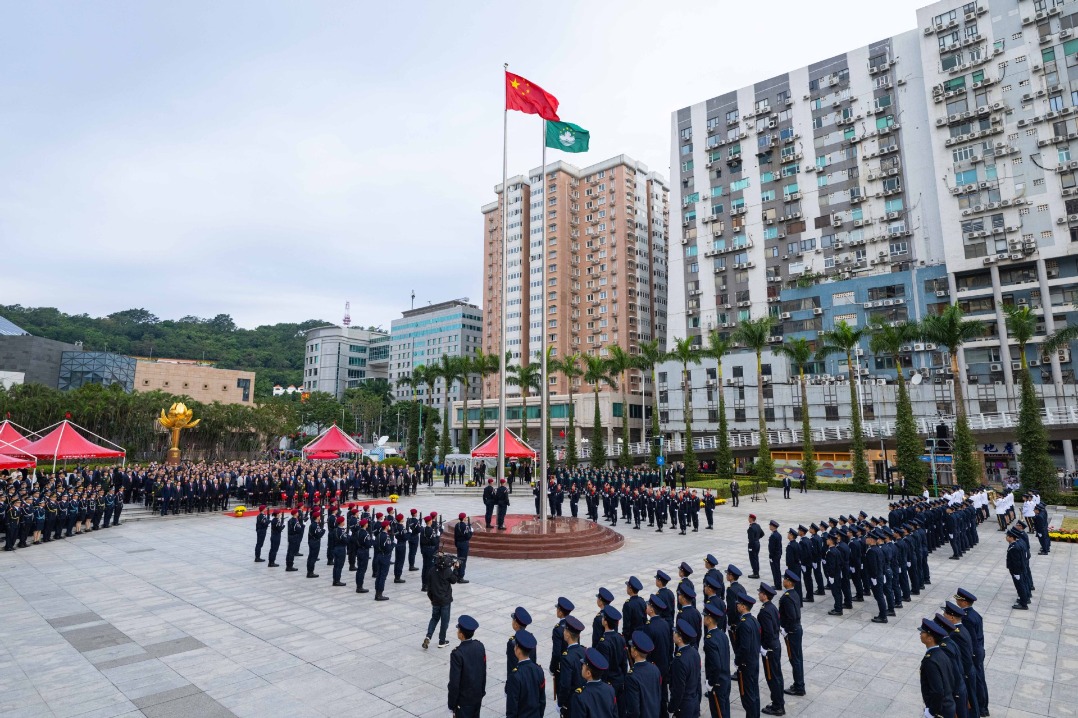Education to further integrate with industrial development


Closer links between businesses and learning institutions will pave the way for greater progress
Enterprises will be encouraged to participate in the operation of vocational schools and universities in the form of sole proprietorships or joint ventures, and grant more intern vacancies to students to strengthen cooperation with educational institutes.
This was part of a notice released by the State Council, China's Cabinet, on Dec 19 to promote the integration of enterprises with vocational schools and universities, to make students and professionals better meet demands from industry.
Universities are also encouraged to ally with key enterprises and startup businesses to help students learn about and undertake innovations. Universities should set their majors in line with the nation's industrial transformation, especially the new round of the technological revolution, the document said.
Higher education schools should fully develop majors, such as modern agriculture, smart manufacturing, environmental protection and artificial intelligence, to meet urgent industrial demands and help advance national strategies.
Higher education resources should be increasingly driven by the job market, especially the demand from enterprises.
Vocational schools are encouraged to link with enterprises to send their students to be trained as interns. Technological professionals and management from enterprises are called to teach in vocational schools and universities. Enterprises, research institutions and social organizations are welcome to play a bigger role in the management of vocational schools and universities.
The notice was the latest move to promote integration. In 2014, the State Council announced it would accelerate building a modern vocational education system and train hundreds of millions of high-quality workers and technicians.
In 2015, the central government declared that renowned universities should also enhance the integration with enterprises in a guideline for building world-class universities.
The allocation of educational resources cannot match industrial planning and development, and meanwhile, some university graduates are finding it difficult to get work, the National Development and Reform Commission said on its website. In university-enterprise cooperation, enterprises are far less enthusiastic than schools, the commission said.
The document aims to further connect occupational and higher education with demands of the market and enterprises, which in turn will be encouraged to participate in the endeavors of improving these educational institutes, the commission said.
Yan Humin, director of the education and research department at Tianjin University of Technology and Education, said the move would be a good way to boost the development of vocational education and help relieve enterprises from the dilemma of finding competent employees.
"My students can intern in manufacturing companies, but many teachers don't know what the real demands are from the perspectives of enterprises. Now key enterprises can join in and tell us how to make good employees for them," Yan said.
The document clarifies the important role enterprises should take, targeting the bottleneck for the integration of schools with enterprises, said Guo Jianru, a professor at the Graduate School of Education at Peking University.
Over the past 10 years, the country has made progress in moving forward the integration but only schools on their own cannot get the job done, Guo said. The key to successful integration lies in the vital role of enterprises, which should be fully aware of how to improve students' skills and meet their demands, he said.
The central government expands the integration from vocational schools to universities, which provides policy support to further cooperation between universities and enterprises, Guo said.
One spotlight of the notice is that key State-owned enterprises, especially those directly administered by the central government, should play a bigger role in boosting the integration, he said.
The notice will be beneficial to promote universities focusing on applied technologies, further transform research achievements into industrial output and improve the competitiveness of China's industries, said Xiong Bingqi, deputy director of the 21st Century Education Research Institute in Beijing.
Xiong suggested a reasonable assessment system for education should be established to promote equal competition and development among all institutes. Meanwhile, schools should be given more autonomy to introduce enterprises to join their management and contribute to the cultivation of high-quality graduates, he said.
huyongqi@chinadaily.com.cn
- Long March 5 rocket deploys tech demo satellite into space
- China launches communication technology test satellite
- Spokesperson warns against aggression toward mainland fisherman
- Lhasa wetland reserve recognized as world's highest altitude wetland
- Chengdu woman sentenced for fatally stabbing neighbor
- Mainland coast guard's patrol in Xiamen-Kinmen waters to safeguard maritime order: spokesperson




































